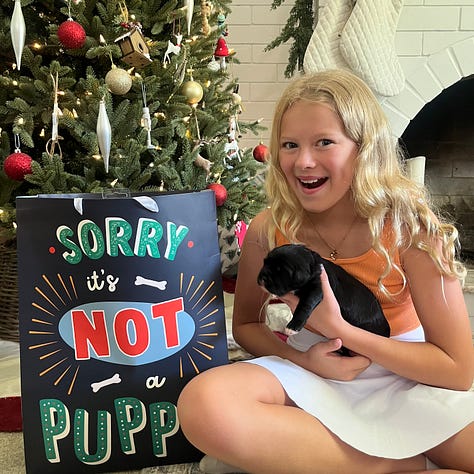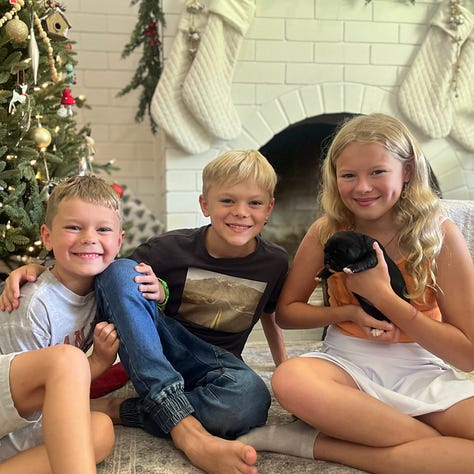I spent a good deal of my 20s working in Nashville, Tennessee, as a touring drummer. And while I had a blast jaunting to and fro across the globe, as many professional artists can tell you, a solid paycheck is not one of the perks of the “gig-to-gig” lifestyle.
Quite often, I’d arrive home from a tour and see my mailbox overflowing with bills - a cornucopia of sadness, splaying its bounty across my front yard. So, tapping into all the wisdom and financial astuteness I’d accumulated sitting in dimly lit greenrooms and tour buses, I’d take these stacks of bills, shove them in a drawer, and go on about my day.
Somehow, I’d convinced myself that as long as I didn’t open the envelopes or look at the amounts, the bills didn’t actually exist. So I stuffed them in a drawer and pretended that all my financial problems were gone and I wouldn’t think of it again!
As insane as that sounds, I have a feeling this phenomenon was not exclusive to only 20-somethings Phil. And as I’ve been working on this EARTH & SKIES series, this ridiculous memory kept coming to mind in connection to our next word from the creation story in Genesis 1.
The word is the Hebrew verb QARA.
QARA (pronounced kah-RAH) means “to name” or “to call”.
QARA appears early in the story after God separates the light from the dark. The poem says the Creator names or calls the light “Day” and the darkness “Night”. Then, this Divine Cosmic Artist goes on to QARA the skies, the ground, and the waters.1
In many ancient cultures, the act of “naming” held profound significance. In Hebrew, to QARA was far more significant than just slapping on a label. Like we saw with RUACH, there are also multiple interpretive layers to this ancient word.
QARA doesn’t only mean “to call” or “name”, but is also translated: “to summon”.
This is so fascinating and profound! So let’s explore it a bit and I’ll show you why I say that.
Last Christmas, Suz and I surprised the kids with a brand-new puppy. Then, as a family, we sat together and decided on what to name her. We eventually landed on the name “Pepper”.2 In one sense, when we named her, nothing new was brought into existence; no new atoms were created to bond together to form new molecules, and those molecules didn’t collaborate to form any new cells, tissue, or bones. And yet, in another sense, something new did emerge. When we named her, she went from being 'that dog over there' to becoming “Pepper”, a new and beloved member of the family.!
This is because there is something about the naming process that is deeper and more meaningful than just giving something a title. When we spoke the name “Pepper”, it was as if we spoke truth and life to the unrealised and pulled (or summoned) her into reality. Our act of naming took the general, vague, and undefined and brought it into being by creating distinction.






Contrary to popular thought, this creation story isn’t about God creating something from nothing.3 Instead, the Creator in this incredible poem summons the cosmos out of the messiness and chaotic state of an unproductive landscape (TOHU vaVOHU), and he does so by clarifying, organising, and making distinctions - by NAMING.4
But it goes even deeper:
Light, dark, water, earth, stars, plants, humans, etc., aren’t just named and given distinction. The naming also gives them function. Their purposes, meanings, and roles are laid out for them in their naming. (Gen 1:14-19)
This ancient Hebrew word QARA also holds meaning for the person or spiritual being doing the naming. Across the creation stories found in the ancient Near East, to name something also meant to take ownership and responsibility for what was named.5
We can see this concept at work in the second Hebrew creation story found in scripture when the animals are brought to Adam to be named (Genesis 2:18-21).6
Handing over this job of naming to ‘a-dam wasn't because the Creator had a sudden episode of writer’s block. This act of trust was God placing the animals under the protective care and responsibility of humanity (the word ‘a-dam in Hebrew simply means "human" or “humanity”).7
This ancient view sees naming as a way of taking the ethereal and making it concrete, grounding the conceptual and abstract in a lived reality.
In essence, QARA isn’t just what we often think of as “naming”. Instead, QARA calls into being, gives clarity, and brings with it a level of ownership and responsibility.
As always, we need to ask, “SO WHAT?” How does any of this ancient stuff matter to us today?
As it turns out, these old folks had some wisdom after all. This NAMING stuff has real practical outworkings for us.
It seems that for some people (like me), there is a sense that if we don’t acknowledge or name something, then it isn’t real or won’t affect us - it’s an avoidance pattern. We might distract ourselves with a good ol’ Netflix binge, ghost a friend because of that awkward thing that Darcy said at the party, or we realise that subconsciously we’ve been taking a longer route to work just to avoid driving past their house again. Maybe we notice something weird is in the air between us and a friend, but instead of addressing it, we change the topic to keep the peace.
This is what we mean when we use the phrase “sweep it under the rug”. All of our creative (and, at times, brilliant) distractions become a multitude of ways to not name what we feel unprepared for or too afraid to face.
It was the life of financial responsibility that 20-year-old drummer Phil was desperate to avoid. My cornucopia of sadness-mailbox represented a reality that my egoic ideals of being a “Professional Musician” couldn’t face. So, my desk drawer provided a “solution” - but one that ultimately came back to haunt me.
By the way, when you pick a fight against reality, reality wins. Every time.
Maybe you’ve known or know someone who can sense something inside of their body isn’t right, but they refuse to go to the doctor for fear of what the diagnosis might be. It’s like they know deep down that once they hear the bad news, they will have to do something about it. Having the information, the diagnosis, and the treatment plan would make it TOO REAL for them, and so as long as it isn’t actually named, it doesn’t really exist.
Naming can provide the clarity that becomes helpful in finally moving out of the TOHU vaVOHU of unknowns and give us a path forward into our future, whatever that looks like. Even if it doesn’t seem good to us right now, naming helps us come to terms with WHAT IS and then helps us know what our next step should be.
One of the most powerful moments for those in recovery and in the 12-step program happens before ever getting to "Step 1". It happens in the act of showing up, owning the truth, and naming why you’re there.8
“Hi. I’m Phil, and I’m …”
While it doesn’t encompass the full journey toward healing and restoration, naming starts the ball rolling.
Have you seen the Disney movie Encanto? Our kids were at a perfect age to keep it on repeat when it first came out. In the movie, there is a character named Bruno whose story arc perfectly demonstrates this healing act of naming.
In his magical family, Bruno has the gift of seeing the future. Bruno’s family, however, driven by his mother, the matriarch of the family, believes his gift will bring bad luck, so they shun him. Bruno ends up fearing his gift as well and exiles himself away from the family to keep them safe (in reality, he hides inside the walls of the large family home). His mother refuses to let anyone speak about Bruno’s absence. The ban from speaking about Bruno ends up dominating the household.
What isn’t said impacts every conversation.
The sound of this silence is deafening and it reverberates through the family in what has become their family anthem: “We Don’t Talk About Bruno!” But, when Mirabel (Bruno’s niece) finds him and realises the truth, she helps the family face their fears and reconcile with Bruno. Her act of NAMING transforms the family’s obsessive avoidance into a celebration of healing and acceptance.
This powerful story from our pals over at Disney perfectly illustrates this ancient word, QARA. It reminds us that it’s not until issues are named that we can take ownership of them and begin moving towards a greater purpose, freedom, healing, reconciliation, transformation, and ultimately, JOY!
The Wrap Up
Well, we’ve covered some ground here. Thanks for hanging in there. This one is a particularly big deal for me and I’ve seen the power of this practice for many years, even after the old mailbox mess was cleared away.
But because there’s been a good bit of info-dumping, I thought I’d just offer a few quick takeaways:
Qara concretises the abstract:
Maybe you’re feeling emotionally scattered, and your body, heart, and mind feel a bit like the chaotic TOHU vaVOHU we explored in the last post. What if these muddied and hazy feelings could begin to find shape and clarity if you could properly name them?9
This is true in relationships as well. There is a space that exists between people, and when things go unnamed for too long, it disrupts that space. We often respond to the disruption by putting up walls and creating distance, which paves the way for bitterness to set in.
Trauma experts say that without naming a chaotic event, we risk re-traumatization and a cycle of negative expectations. Naming these experiences begins the process of untangling the complexities of the event and can bring us to a place of peace, order, and acceptance.10
Qara defines - bringing distinction and clarity:
Do you lead a team or a community, a project, or a company? Are there people in that group that regularly don’t meet the needs of the whole? What if it’s simply because roles and expectations haven’t been clearly set out and defined for them?
Qara summons:
It’s worth noting that we aren’t just needing to name the negative and traumatic things. This summoning power asks the question, “What if there are real gifts inside of us that have been laying dormant for years, sidelined by the busyness of life, and they are just waiting to be spoken to, divinely breathed on, and summoned back into reality?” Maybe it’s time to begin speaking about those old passions again and seeing where those conversations take you!
So, what is something in your life, your work, your relationships, your inner world of feelings that need to be named? Could you begin to find the courage to have those difficult conversations - with yourself, with God, with a therapist, a spiritual director, or a wise friend? This practice, when used wisely, can truly be the gateway for profound breakthroughs, healing, bringing peace to the storm, finding new beginnings, and so much more.
There will be more to come in this series, but this is plenty for now.
peace and JOY!!
Phil
A very short afterthought:
As we have seen, "Naming" can be a powerful force. One powerful enough to create a world/reality through defining and clarifying. However, this powerful practice (as with most things) has a shadow side, so that shadow also needs to be named.
While naming holds the power to clarify and define, it can also be misused, particularly when it’s used to label or limit others. When we name others - especially their experiences, identities, or struggles - we risk reducing them to a single narrative that may not be true to their full humanity. This kind of labeling doesn’t create freedom; it keeps cycles of harm intact, reinforces stereotypes and can distort someone’s true self.
This is why naming must always be approached with humility, compassion, and curiosity. Rather than using naming as a tool to define others, it should be a process that first helps us understand and process our own experiences.
True healing and change come when we start from a place of empathy,acknowledging the shared reality of our human experience. Only then can the act of naming bring clarity, ownership, and ultimately, freedom.
Footnotes
In Hebrew, sky and water are both plural nouns. Just a fun fact for ya.
Totally my suggestion, for the record.
This is what is often termed as “Creatio ex nihilo”, which is Latin for "Creation from nothing”. While I’m sure the original audience, if asked, would also say that God also made all of the pre-cosmos stuff, that is NOT what is happening in this story. God, in this tale of creation, is working with the pre-existing material, which is unordered, unproductive, and a wasteland.
This statement is not simply my opinion but is backed up by the best scholars in this field. If this topic tickles your fancy, as it clearly does mine, have a peek at:
John Walton, Ancient Near Eastern Thought and the Old Testament: Introducing the Conceptual World of the Hebrew Bible, Baker Academic (Grand Rapids, 2006).
Johnny Miller and John Soden, In the Beginning We Misunderstood, Kregel (Grand Rapids, 2012).
John Walton, The Lost World of Genesis One: Ancient Cosmology and the Origins Debate, InterVarsity Press (Downers Grove, 2009).
Yes. There are two different accounts in page one and page two of the bible. There are other accounts in scripture as well. For instance, see Gen 1, Gen 2; Job 38-39; Psalm 104 for example).
Sadly, we can probably all admit that we’ve pretty well dropped the ball on that one…
Have you heard of The Emotion Wheel? There are a few out there, but Dr Robert Plutchik’s is amazing and is explained well here: Plutchik’s Emotion Wheel
Brene Brown also talks about “Emotional Granularity” in her book “Atlas of the Heart”. In it she offers 87 of the emotions and experiences that define what it means to be human.
I also like the one described here as well, though I don’t know from whom the art originated. There are a lot like it out there. Just Google, “Emotions Wheel” and you’ll find a plethora of versions.
For more on this incredible insight, see:
John Sharp M.D. - The Insight Cure: Change Your Story, Transform your Life (Hay House, 2018)
Mary Boullier, Mitch Blair - Adverse Childhood Experiences, in Paediatrics and Child Health (2018)
Bessel Van Der Kolk - The Body Keeps the Score: Mind, Brain, and Body in the Transformation of Trauma (Penguin Press, 2015).




